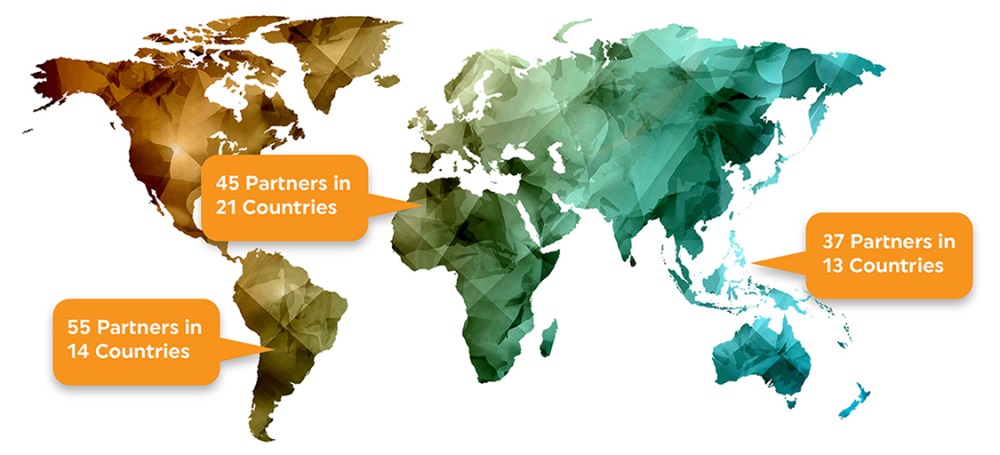Rainforest Trust Releases New Report: Our Conservation Partners Weigh In

Rainforest Trust has just released a new report based on the results of a major survey of our conservation partners around the world entitled Wild Optimism: Insights from the Front Lines of Global Conservation.
A fundamental question asked, and answered by the 137 conservation leaders responding to the anonymous survey, is: “Are current local and global conservation efforts effective?” It turns out, 80% of respondents on the frontlines of conservation are optimistic about their local and regional conservation efforts, and with good reason. The majority of our partners are making significant progress in their corner of the world, working closely with local communities to formally protect vulnerable areas either through legal recognition of Indigenous or traditional territories or through the establishment of protected or other conserved areas.

A lesser number of respondents (72%) agreed that global conservation efforts are headed in the right direction, having less optimism about the political, regulatory and financial commitments of nations to implement conservation.
Our partners pointed out the many barriers they face in their work, the most prevalent being limited engagement by their governments and the uncertainty of reliable, sufficient, long-term funding—a necessary requirement for sustainable success in conserving threatened ecosystems for wildlife and human communities.
Climate change is having a major, negative impact on habitats and species, with 88% of respondents agreeing that habitats are under more stress from climate change than even three years ago, and 86% agreeing that species are in near-term or immediate risk from its impacts. Drought, intense rainfall, wildfires and landslides were among the top harms associated with climate change by our partners.
Immediate solutions are urgently needed, and one stands out: the importance of protecting standing forests. This was recognized by 84% of our survey respondents as a key strategy for mitigating climate change.
Rainforest Trust’s mission has consistently emphasized the importance of saving existing forests. The World Resources Institute, the leading global expert on the world’s forests, confirms that tropical rainforests are by far the most important ecosystems for mitigating climate change, with primary and mature secondary forests far more effective in sequestering carbon than younger forests.
There is a clear path forward, and our partners agree that we must authentically engage with Indigenous and local communities and embody their knowledge and traditional practices in conservation solutions. We must hasten our governments to support the work, and increase and extend global funding by all means possible.
In freely sharing their perspectives on the state of conservation today, the valuable insights provided by our partners will guide our work moving forward.
Together with our partners and donors, Rainforest Trust has supported the protection of over 46 million acres of rainforest and other critical habitat from destruction in Africa, Asia–Pacific, and Latin America and the Caribbean. The job is far from over, and time is running out. But the optimism of our partners across the globe inspires renewed dedication to what is the greatest challenge of our times – to save biodiversity, prevent catastrophic climate change, and support human communities to live sustainably and in concert with nature.









